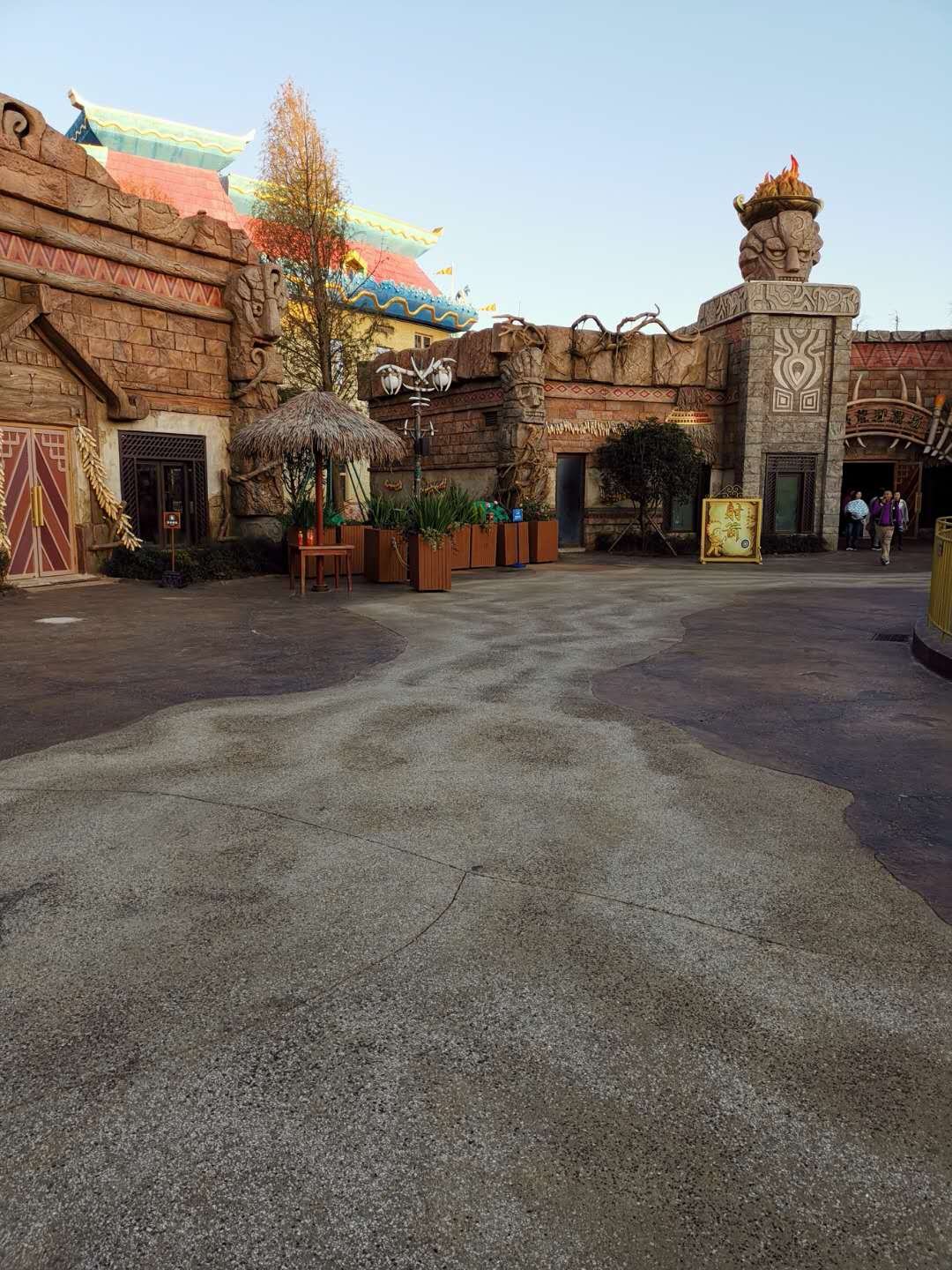Themed Hardscapes: From Concrete to Character
Turning Surfaces into Storytelling Elements in Immersive Environments
When guests walk into a theme park, their eyes may be drawn to towering castles or colorful facades—but what they’re walking on sets the tone for the entire experience. From cobbled streets in medieval villages to scorched desert outposts or glittering intergalactic hubs, themed hardscapes are foundational to the immersive illusion. At CASTO, we know these surfaces aren’t just functional—they’re a character in the story.
In this article, we take a closer look at how themed hardscapes evolve from raw concrete to finished environments that speak to setting, mood, and narrative.
What Are Themed Hardscapes?
Themed hardscapes refer to decorative ground surfaces—horizontal or sloped—engineered not only for structural performance but also for storytelling. Unlike conventional concrete finishes, themed hardscapes integrate creative design, specialized textures, layered color techniques, and custom materials to match a specific visual language.
Whether it’s a cobblestone alley in a fantasy village or a sun-bleached boardwalk on a pirate coast, these surfaces are art-directed to match the context of the world they’re helping bring to life.
The Material Palette: Concrete as a Canvas
Concrete is the most common material for themed hardscapes because of its adaptability. But the transformation happens through:
Integral Coloring & Specialty Aggregates
Base tones are baked into the mix, not just applied on the surface, creating color longevity and depth.Stamping & Texturing Techniques
Custom stamps mimic natural stone, worn wood, volcanic surfaces, or fabricated sci-fi patterns.Stains, Dyes & Hand-Painted Detail
Layered applications of acid stains, water-based dyes, and hand-touched aging techniques create variation and realism.Sealers & Performance Coatings
Themed doesn’t mean fragile—finishes must endure millions of footsteps, strollers, weather exposure, and cleaning regimens.
Designing for Both Aesthetic & Performance
Themed hardscapes must do more than look good on day one. At CASTO, our approach focuses on constructability—that balance between visual intent and buildability. Here’s how we ensure long-term success:
Collaborative Design Reviews
We bridge the gap between designers and contractors to ensure that textures, joints, and finishes are practical and maintainable.Mockups & Material Testing
Every surface is reviewed through custom mockups to verify color accuracy, slip resistance, drainage, and durability.Interior vs. Exterior Considerations
While interior themed finishes may focus more on aesthetics, exterior finishes require a closer look at temperature, UV stability, and wear-and-tear.
From Ground Plane to Guest Experience
In immersive environments, the ground is not an afterthought—it’s the anchor of believability. A story-driven experience depends on every detail, and that includes the cracks in the sidewalk, the type of aggregate underfoot, and the faded paint on faux stone pavers.
Hardscapes serve as a transition zone, helping guests move from one scene to the next while reinforcing the story world under their feet.
Great storytelling doesn’t stop at eye level. At CASTO, we believe the ground is the first page of the guest experience.
— Matthew Casto, CEO, CASTO
Why It Matters
Too often, hardscapes are treated as “just paving”—but they’re one of the most visible, most trafficked, and most photographed components in any themed space. When well-designed, they disappear into the story. When poorly executed, they break the illusion.
By working closely with owners, creative teams, and installers, CASTO ensures that themed hardscapes aren’t just poured—they’re crafted.
Universal Studios Epic Universe 2025
Key Takeaways
Themed hardscapes blend artistry, engineering, and durability.
Material selection, texture application, and finish detailing are critical.
Design reviews and testing ensure long-term performance in themed settings.
CASTO specializes in turning flat concrete into functional works of story-driven art.















